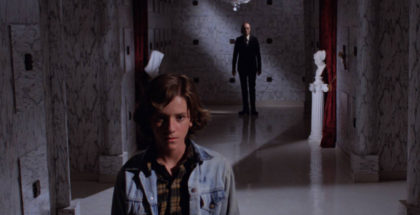VOD film review: A Thousand Times Good Night
Review Overview
Performances
8Power
7Subtlety
6David Farnor | On 07, Sep 2014
Director: Erik Poppe
Cast: Juliette Binoche, Nikolaj Coster-waldau, Lauryn Canny
Certificate: 15
Watch A Thousand Times Good Night online in the UK: TalkTalk TV / Apple TV (iTunes) / Prime Video (Buy/Rent) / Google Play
“In his darkroom he is finally alone
with spools of suffering set out in ordered rows.
The only light is red and softly glows,
as though this were a church and he
a priest preparing to intone a mass.”
Carol Ann Duffy’s War Photographer is a powerful poem about someone struggling to deal with the images they have seen in the field, which haunt them as they develop in the dark room. “All flesh is grass,” Carol Ann writes, a sentence whose blunt impact has been softened by the teaching of the text in schools, which highlights its messages in unsubtle analysis.
That’s the same experience you get from A Thousand Times Good Night. Directed by Norwegian Erik Poppe, who was once a press photographer for Verdens Gang, the film rings with the kind of emotional authenticity that comes from personal experience. Juliette Binoche plays Rebecca, a war photographer who finds her family unravelling when she returns from a dangerous assignment abroad.
Binoche is perfect for the part of timid yet ruthless Rebecca, her understated expressions of pain like a restrained mouse slowly seeing its cheese being taken away. She is matched by Game of Thrones’ Nikolaj Coster-Waldau (who continues to find increasingly diverse roles away from Jaime Lannister) as her husband, Marcus. All sexy hair and troubled stubble, he reprimands her for not being there for their kids.
She insists on going back into the field, though, taking daughter Steph with her to Kenya. Scenes where the two women take snapshots, only to be separated, are where Poppe finds his dramatic punch; Lauryn Canny is superb as the young girl, simultaneously sad and spitting at her mother with spite.
It’s a disappointment, then, that the script (by Poppe and Harald Rosenløw-Eeg) spells out so much of the subtext. “I want people to choke on their coffee!” asserts Binoche in a fiery outburst. It immediately recalls Duffy’s poem, not just the “hundred agonies in black-and-white / from which his editor will pick out five or six / for Sunday’s supplement” but the heavy-handed, classroom manner in which these moral debates are contrived, complete with an occasionally intrusive, sentimental soundtrack.
For every loud discussion, though, there is an equally moving quiet exchange: Steph speaking on stage at school, or snatching her mum’s camera away, only to subject her to the cold examination of its rapid-fire lens. The opening sequence, which sees Rebecca silently accompany a young suicide bomber from vest-donning to a crowded town centre, is gut-wrenching to witness. As Rebecca’s calm exterior crumbles, the beautiful cinematography captures the fallout of war in a genuinely affecting way. You wish A Thousand Times Good Night managed to sustain that subtlety throughout. The uniformly excellent performances, though, mean that there are real moments of power between the overdone lines. It may recall Carol Ann, but this is far from duff.


















